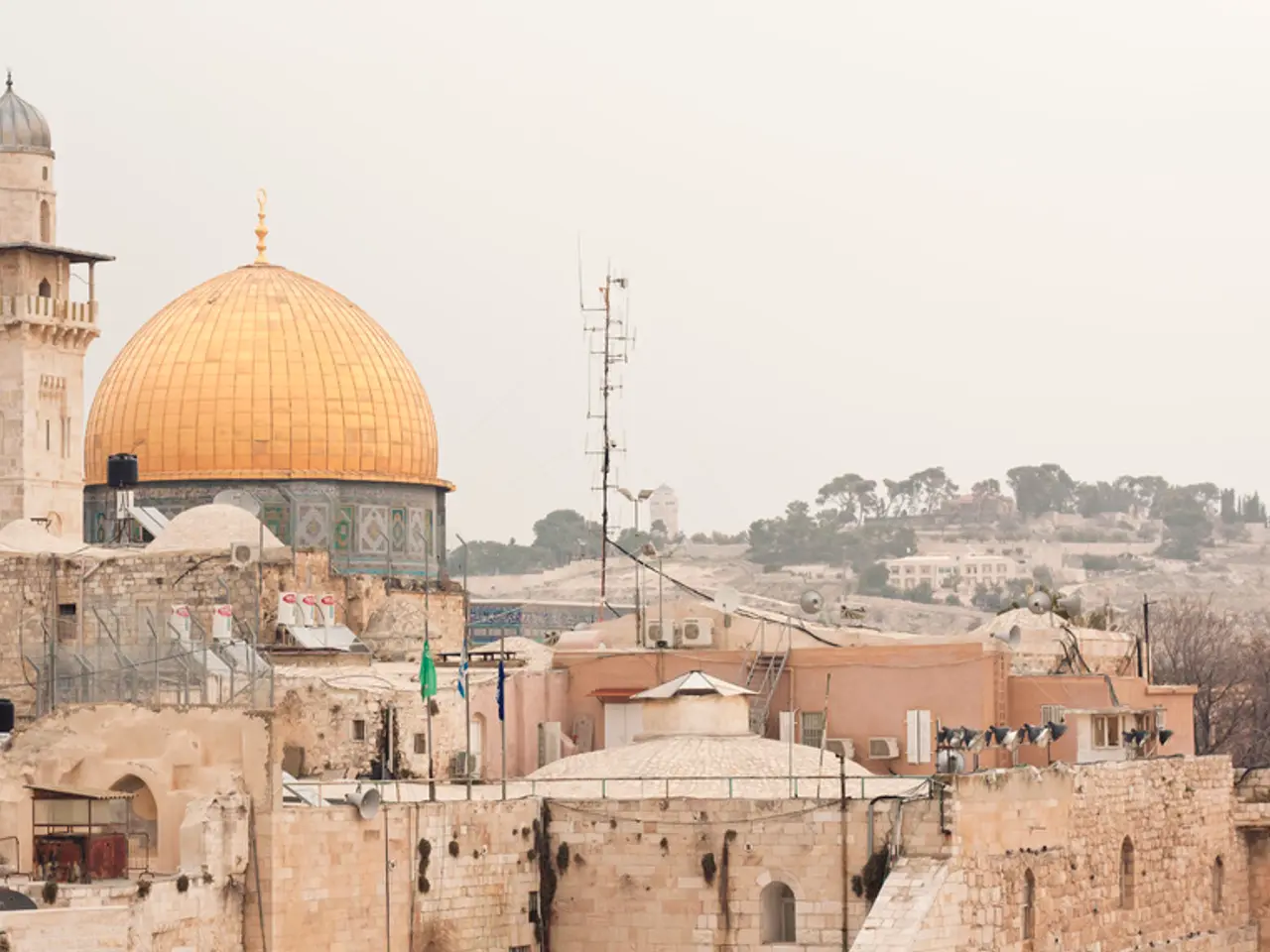Ghana's 2023 Budget Amid IMF Bailout: A Mixed Bag
Assessment and Reality Check of the 2023 Mid-Year Budget Adjustments
Ghana's economy is navigating a complex landscape, particularly under the IMF's latest bailout program. Here's the skinny:
Politically unbiased analysts have noticed that the current administration, led by President Nana Akufo Addo, is known for its sunny outlook on economic matters. This Optimism was on full display when Finance Minister Ken Ofori Atta presented the mid-year review of the 2023 budget to Parliament on July 31st.
However, the ensuing controversy, fueled by political opponents and financial experts, highlights the differing perspectives on Ghana's economic health. Despite the optimism, key industries like banking and pensions are raising concerns.
Statistics presented by the finance minister seem to back up his claims. For instance, the cedi's depreciation against the US dollar has been more stable since January, and headline inflation dropped from a peak of 54.4% in December 2022 to 43% as of now.
This relative stability suggests that Ghana's economy has recovered from the turbulence of 2022. And in a welcome relief, no new taxes were announced in the revised budget, indicating that the government's recent round of tax measures coupled with public debt restructuring might be enough to spur economic recovery.
Yet, the finance minister admits that significant challenges remain, and astute observers can spot more obstacles that he chose to overlook. Key among these is the downward revision of the projected overall GDP growth rate for 2023 from 2.8% to 1.5%, and the upsurge in projected end-of-year headline inflation from 18.9% to 31.3%. Furthermore, Gross International Reserves are expected to cover only 0.8 months of imports by year's end.
The government intends to balance public revenues with expenses, but the primary balance is now forecast to be a deficit of 0.5% of GDP, as opposed to the original target of a 0.7% surplus. While this has provided critics with ammunition, they overlook the fact that the current administration is finally adhering to their call for significant government cost reduction.
The revised budget indicates that the government has successfully reigned in its spending since the beginning of the year, an achievement possible due to the IMF's presence. Yet, there are lingering doubts about the credibility of the government's projections, based on past failure to meet targets.
Meanwhile, Ghana's overall economic outlook is a mixed bag. Yet, the IMF's involvement could lead to economic stability and job creation, potentially benefiting low-income households. However, the impact on poverty levels remains complex. Achieving economic stability should enhance investor confidence and create opportunities. Lower inflation, if managed carefully, could lessen the burden on the poor. And infrastructure development could indirectly benefit poverty-stricken areas by enhancing access to services and economic opportunities.
In the end, the success of these initiatives in reducing poverty will hinge on the effectiveness of the structural reforms and the ability to translate economic stability into tangible benefits for the most vulnerable populations.
- Despite the optimistic views presented by Finance Minister Ken Ofori Atta, key industries like banking and pensions are expressing concerns about Ghana's economic health.
- The government's aim is to balance public revenues with expenses, but the primary balance is now forecast to be a deficit of 0.5% of GDP, a deviation from the original target of a 0.7% surplus.
- Statistics presented in the mid-year review of the 2023 budget seem to back up the Finance Minister's claims, such as the cedi's more stable depreciation against the US dollar and a decrease in headline inflation.
- The IMF's involvement in Ghana's economy could lead to economic stability and job creation, potentially benefiting low-income households. However, the impact on poverty levels remains complex.
- Infrastructure development, which could lead to enhanced access to services and economic opportunities in poverty-stricken areas, may be indirectly benefited by the ongoing economic stability in Ghana.




